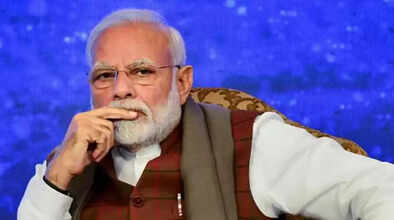The work of GST reform started with this one gesture of PM Modi, which will now change the budget of every household..

The GST Council, led by Union Finance Minister Nirmala Sitharaman, has introduced a new structure, making a major and much-awaited reform in the tax system. Instead of the four tax slabs (5%, 12%, 18% and 28%) till now, there will be only two main slabs of 5% and 18%. Along with this, the essential items of everyday use have been made completely tax-free.
After this change, which will come into effect from September 22, there will be a significant reduction in the prices of about 400 products. This includes products of both common and special categories like soap, shampoo, tractor, car, and air conditioner. The government believes that this decision will not only provide relief to consumers but will also strengthen the consumption and economic growth of the country.
The story of GST reform started with a gesture.
The background of this big change is related to December 2024, when Prime Minister Narendra Modi told the Finance Minister, "GST should be seen once!". After this, Sitharaman not only started reviewing the complexities of tax slabs, but also emphasized making GST easier and simpler for small and medium businesses.
In an interview with PTI, the Finance Minister said that the Prime Minister repeatedly asked her to ensure that GST becomes helpful and not a burden for the common businessmen. The Finance Minister said that when the budget preparations were going on, the Prime Minister once again reminded, "You are working on GST, right?" After this, the Finance Ministry did a comprehensive study and examined the technical preparations.
Tax slabs were reduced, and essential things were made tax-free.
This proposal was finalized in the meeting of the GST Council held on September 3. Before the meeting, the central government had finalized this proposal in consultation with the Group of Ministers (GoM) of 6 states. GoM agreed on only 5% and 18% by removing the slabs of 12% and 28%. Apart from this, a special tax of 40% will be imposed only on tobacco and ultra-luxury products. Under this decision, there will be no tax on essential items like bread, milk, and cheese. At the same time, 5% tax will be levied on electric vehicles and small cars, and an 18% tax on other items of domestic consumption.
Consumers will get direct benefits
The Finance Minister has termed this change as "Jan Sudhar". He says that every citizen of the country will benefit directly or indirectly from this. Especially the prices of those products will come down, which are used in every household. Apart from this, the premiums paid on health and life insurance will now be tax-free, which will provide additional relief to the middle class. The Finance Minister also said that this time the reforms are not limited to just tax rates, but their focus is on making this entire system more favorable for small and medium traders.
New GST framework will be implemented from September 22
The government has clarified that this new GST framework will come into effect from September 22, which will start from the first day of Navratri. Before this, all the backend software will be prepared so that the correct and timely implementation of the new tax rates can be ensured. Sitharaman said her next focus would be to ensure that businesses pass on the full benefits of the tax rate cuts to consumers. She also added that this reform goes beyond cutting interest rates and will infuse a new energy into the country's economy.
Disclaimer: This content has been sourced and edited from TV9. While we have made modifications for clarity and presentation, the original content belongs to its respective authors and website. We do not claim ownership of the content.

